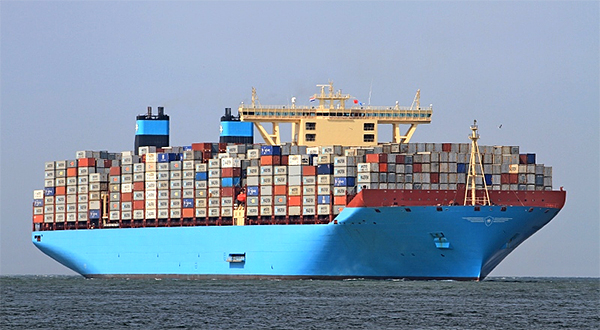According to IMO, in 2012 international shipping was responsible for 796 million tonnes of CO2 emissions, around 2.2 percent of global emissions. However “Shipping impacts the world in many positive ways by enabling trade around the world,” Mads Stensen, global sustainability manager at Maersk, told CNBC’s Sustainable Energy
Mr Stensen explained that industry’s environmental impact is not insignificant, therefore manufacturers are looking ways to mitigate the impact.
An exhaust gas cleaning system is currently being developed entitled the ‘scrubber’ for the large engines of ships.
“The system can remove, for example, sulphur emissions from the exhaust gas,” Stensen said.
Stensen went on to add that Maersk was looking to modify and update its fleet to help boost its efficiency and sustainability.
These include upgrading engines, propellers that are more fuel efficient, and increasing the capacity of the vessel so more containers can be carried on board.
Mr Stensen referred to Maersk’s Eco Voyage Tracker (EVT), a cutting edge technology which allows the company to monitor its fleet across the world’s oceans at all times.
Maersk has committed to energy efficiency across its operations with a target of 60% less CO2 emitted per container moved by 2020 (2007 baseline). Combined with an expected 80% more volume in 2020, reaching this improvement target will result in Maersk Line having saved approximately 200 million tonnes CO2 from 2007 to 2020. Learn more here































































